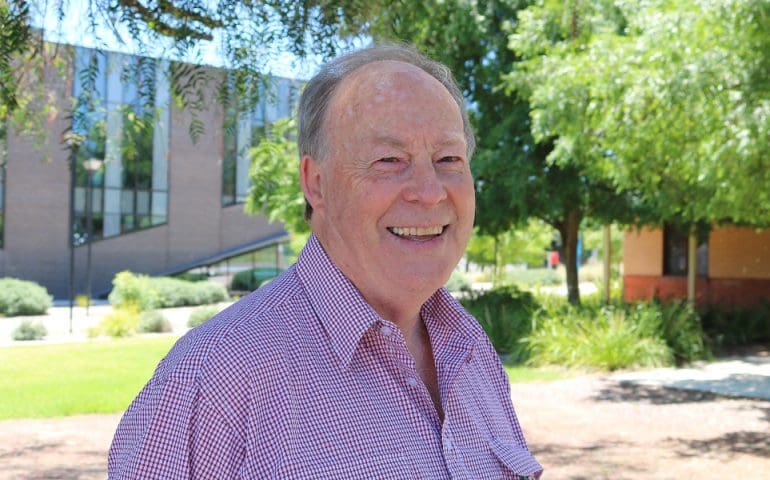THE Federal Government’s announcement that the cost of a university agriculture degree is to be slashed by 62 per cent has been welcomed by the agricultural and ag education sectors.
Education minister Dan Tehan has flagged that the government will dramatically reduce the fees for degrees in areas of future job demand, such as agriculture, maths, science, health, teaching, nursing, IT and engineering, while other degrees such as humanities and law will become more expensive.
Driven by the need to reboot the economy in the wake of the COVID-19 pandemic, the government is keen to encourage students to take up courses with the best potential employment outcomes.
Charles Sturt University professor of agriculture, Jim Pratley, said it was great to see the government recognise agriculture and agricultural education as an essential sector, although it was yet to be seen whether the price cut incentive would translate to higher enrolment numbers.

Professor Jim Pratley
“What it will mean is a little bit of an unknown in the sense that we don’t quite know whether those price signals work,” he said.
“The good news, though, is that the government has recognised that agriculture needs university graduates to come into the sector.
“We have been crying out for that for well over a decade. Finally, the government has acted by saying this is where the jobs are.”
Professor Pratley said the agricultural job market, like every other job sector, had stagnated during March-April, but was now recovering strongly.
“So, there will be more jobs than we have graduates. 2012 was the low point for enrolments in agriculture. For the next four years there was between a 10 and 20 per cent increase a year,” he said.
“It’s levelled off now, but it hasn’t gone backwards. We have maintained the recovery, but the recovery level is still below what is needed to satisfy the demand for jobs.”
While fees vary, the 62pc cut will see the cost of an agriculture degree drop from around $9000 a year to around $3000/yr.
“While the government is dropping the HECS fee, it is not necessarily making up 100pc of the difference. So, the universities will be wearing part of the cost,” he said.
“Universities are going through a really tough time at the moment with international numbers. So, we are not sure what it will mean within the university sector yet. We’ll have to see what emerges over the next few days in terms of the detail.”
Professor Pratley said while he was delighted to see that the government had recognised agriculture as an area where there was a great need for professionals, he couldn’t understand why some other important sectors were singled out to have their university fees increased.
“As someone who has been in the education sector all my life, the problem I have is the principle that universities are just about jobs,” he said.
“Universities are more about the greater education agenda, not just specifically for jobs. It’s about higher learning, learning how to learn and preparing for the jobs of the future that aren’t there yet. So, university graduates lead the way in the new employment agenda.
“We need graduates in all areas. I don’t know why humanities has been the one targeted for the big hit. We need a lot of the social and soft skills going forward because they are pretty important.”

The government suddenly decides there will be more Ag jobs than applicants but all the rural Ag Colleges have been disbanded and closed!!! This is ludicrous and the colleges at Longreach, Emerald and others should be reopened ASAP.
Professor Pratley is to be commended for his continuing advocacy for more tertiary qualified people joining agriculture as a career decision. He and his team at the Australian Council of Deans of Agriculture provided strong evidence as to the need and lack of supply. In the beef industry we worked with him to inspire careers in our industry by providing scholarships and funding support through the Australian Beef Industry Foundation.
Family budgets are stretched for cattle producers currently due to droughts, fires and floods. This significant reduction in the cost of tertiary education for our future industry members will greatly assist their realising their self fulfillment by farming in Australia. I am sure it will also be welcomed by other players in our supply chain.
Australian Beef Industry Foundation
Much cheaper and you will learn more IF you are oriented toward beef production…………..by learning Johann Zietsman’s concepts.
“Schools like the Regenerative Ranching with Jim, Johann, and Mark (which was excellent) based on practical experience are worth more than 4 years of college. – Kim Barker USA
http://profitableranching.com